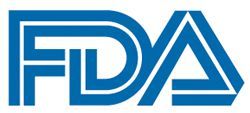FDA Grants Priority Review to Revumenib for R/R KMT2A+ AML/ALL
The FDA granted priority review to the NDA seeking the approval of revumenib for the treatment of relapsed/refractory, KMT2A-rearranged acute leukemia.
FDA

The FDA has granted priority review to the new drug application (NDA) seeking the approval of revumenib (SNDX-5613) for the treatment of adult and pediatric patients with relapsed or refractory acute leukemia harboring KMT2A rearrangements.1
The NDA is supported by data from the pivotal phase 1/2 AUGMENT-101 trial (NCT04065399), which evaluated the menin inhibitor as monotherapy in adult and pediatric patients with KMT2A-rearranged acute myeloid leukemia (AML) or acute lymphoblastic leukemia (ALL). Findings showed that the study met its primary end point with a complete remission (CR)/CR with partial hematologic recovery (CRh) rate of 23% (95% CI, 12.7%-35.8%; one-sided P = .0036) among evaluable patients in the pooled KMT2A-rearranged AML/ALL population (n = 57).
Additionally, the overall response rate (ORR) was 63%, and 39% of responders (n = 14/36), underwent hematopoietic stem cell transplant.
“The receipt of priority review for the revumenib NDA filing is a significant milestone as we transition to a leading commercial-stage oncology company with the planned launches of two first- and best-in class drugs in 2024,” Michael A. Metzger, chief executive officer of Syndax Pharmaceuticals, stated in a news release. “With two regulatory filings now under FDA priority review, our team is focused on commercial preparations to enable Syndax's continued success as we enter this next stage of growth.”
AUGMENT-101 was an open-label, multicenter, dose-escalation and -expansion study that enrolled patients 30 days of age and older with active acute leukemia, defined as bone marrow blasts of at least 5% or reappearance of blasts in peripheral blood per the National Comprehensive Cancer Network Clinical Practice Guidelines in Oncology for ALL (version 1.2020) and AML (version 3.2020); or those with acute leukemia harboring a KMT2A rearrangement, NUP98 rearrangement, or NPM1 mutation, who had detectable disease in the bone marrow.2
Following dose escalation in phase 1, the phase 2 dose-expansion portion of the study enrolled patients into specific cohorts:
- Cohort 2A: Documented relapsed/refractory ALL/mixed-phenotype acute leukemia harboring a KMT2Arearrangement
- Cohort 2B: Documented relapsed/refractory AML harboring a KMT2A rearrangement
- Cohort 2C: Documented relapsed/refractory AML harboring a NPM1 mutation
Other key inclusion criteria included a white blood cell count below 25,000 cells/µL, an ECOG performance status of 0 to 2 or a Karnofsky/Lansky score of at least 50, and adequate organ function.
Key exclusion criteria included active acute promyelocytic leukemia, active central nervous system disease, cardiac disease, gastrointestinal disease, and graft-vs-host disease. Notably, patients with isolated extramedullary relapse were not permitted to enroll in phase 2.
During dose escalation, patients were treated in 1 of 6 arms to establish a recommended phase 2 dose for the 3 indication-specific cohorts during dose expansion.
In phase 2, the CR/CRh rate and incidence of treatment-emergent adverse effects (AEs) served as the primary end points. Secondary end points for phase 2 included transfusion independence, composite CR (CRc) rate, ORR, time to response, duration of response, event-free survival, and overall survival (OS).
Additional phase 2 data showed that the CR/CRh rate was 23% (95% CI, 11.5%-37.8%) in adult patients (n = 44) and 23% (95% CI, 5.0%-53.8%) in pediatric patients (n = 13). The median time to CR/CRh was 1.9 months (95% CI, 0.9-4.5), and the CRc rate was 44%. The median OS was 8.0 months (95% CI, 4.1-10.9).3
In patients who achieved a CR/CRh and were evaluable for minimal residual disease (MRD; n = 10), 70% were MRD negative. In evaluable patients who achieved a CRc (n = 22), 68% were MRD negative.
Regarding safety (n = 94), treatment-related AEs (TRAEs) led to dose reductions and treatment discontinuation in 9% and 6% of patients, respectively.
Any-grade TRAEs reported in more than 20% of patients included nausea (28%), differentiation syndrome (27%), and QTc prolongation (23%). Notably, grade 3 differentiation syndrome occurred in 15% of patients, and 1 patient experienced grade 4 differentiation syndrome. The rate of grade 3 QTc prolongation was 14%; however, no grade 4 or higher events were reported. Differentiation syndrome, cytopenias, and QTc prolongation did not lead to any treatment discontinuations.
References
- Syndax announces FDA priority review of NDA for revumenib for the treatment of relapsed/refractory KMT2Ar acute leukemia. News release. Syndax. March 26, 2024. Accessed March 26, 2024. https://ir.syndax.com/news-releases/news-release-details/syndax-announces-fda-priority-review-nda-revumenib-treatment
- A study of SNDX-5613 in R/R leukemias including those with an MLLr/KMT2A gene rearrangement or NPM1 mutation (AUGMENT-101). ClinicalTrials.gov. Updated March 25, 2023. Accessed March 26, 2024. https://clinicaltrials.gov/ct2/show/NCT04065399
- Syndax presents positive data from pivotal AUGMENT-101 trial of revumenib in relapsed/refractory KMT2Ar acute leukemia at late-breaking oral presentation during 65th ASH Annual Meeting. News release. Syndax. December 12, 2023. Accessed March 26, 2024. https://ir.syndax.com/news-releases/news-release-details/syndax-presents-positive-data-pivotal-augment-101-trial



